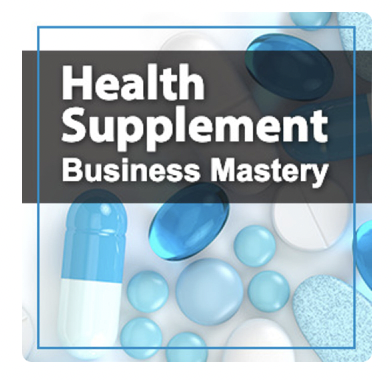Industry Report: Dietary Supplement Trends for 2020
The global dietary supplements market is projected to approach $252.1 Billion dollars by 2025.
The rising aging population and increasing healthcare cost are some of the factors driving the growth.
The dietary supplements market in North America is at mature stage compared to that in developing nations overseas in Asia.
Which is where a large part of the future growth will come from. The Asian market will be the largest market for dietary supplements globally.
This is due to two major factors.
First Asian consumer awareness and availability in the market overseas.
And second, the increase in disposable income of Asia Pacific consumers.
For the North America dietary supplement industry, the market is pretty mature.
As with any mature stage market, It takes the natural evolution of marketplace sophistication.
Just as any product category goes through the 5 stages and then back around again as it creates a new unique mechanism.
One such mechanism is technology, in the form of i-Nutrition.
Or rather combining technology with other aspects of nutrition to create something new.
This trend will continue to grow in 2020 as the rise in data continues to grow.
Data will continue to support and influence how one manages their own health. (Especially as millennials age.)
This trend is going beyond targeted DNA testing services, which we saw a lot of in the last 3 years.
Customization based on DNA will continue to rise and become more mainstream in terms of personalized nutrition.
One example is from a subscription company called MixFit, an artificially intelligent nutrition algorithm Mina, which calculates your nutrient needs based on your diet, activity level and personal profile. And it leverages Blockchain to do it all in real time, serving up a delicious drink right in your own kitchen from a countertop system.
The road for i-Nutrition was paved with technology from FitBit, Samsung’s Galaxy Gear and Apple Watch to gameify our sleep quality, steps we’ve taken, and our level of activity throughout the day.
This combination of technology, personalization and nutrition is a trend that will continue through to 2025 before it really becomes mainstream.
What is going to propel it, is the ability to take an individual’s diagnostics through to a supplement solution and back to the customer again to validate the effectiveness of the solution.
On the tactical side of this we’re already seeing how direct response marketing is capitalizing on this trend to health tech. Through a free plus shipping funnel for a heart monitor.
Leveraging the appeal of this trend to capture a ton of buyers in a front-end funnel.
Offline this trend has been heating up at physical workout facilities like Orange Theory Fitness.
Orange Theory Fitness facilities designed a workout to keep you within your personal Orange Zone during your custom workout.
The goal is to keep your heart rate between 84% to 91% of your unique heart rate maximum for the best workout.
As the current market of 40 year olds enter their 60’s in twenty years they will become the most tech savvy set of 60 year olds the market has ever had. (before the millennials catch up to old age.)
So this trend is not going anywhere anytime soon.
Which ties into the next trend for 2020…
Senior sports nutrition.
The over 50s and 60s market is growing and they have never been more health conscious.
We’ll see more sport centered products aimed at this older group starting in 2020 and continuing for another 10 – 15 years at least.
The trick is going to be how to market the “sports-end” to the senior market.
One angle we’re seeing working is the “keeping up with younger people.”
Not only in competitive areas like spartan races but also for more casual seniors as well.
But what about consumable products?
Back as early as 2009 we saw the trend toward whole food nutrition starting.
Which brought with it Non-GMO (now common place) and the desire to know more about how food and ingredients are sourced.
In some pockets of the country we spotted listings on menus stating what farms had raised the meat used in dishes.
Now we’re seeing the natural marketplace sophistication evolution of that trend.
With the term “plant-based” being added to many existing products. (That have always been plant-based.)
The collective consciousness of how bad processed food is for you, is fully baked into the marketplace at this point.
In the last few years, consumers have become much more conscious of where the food they eat comes from and how it is processed.
Currently the term plant-based is quickly becoming over used. As it gets slapped onto existing products overnight.
The impact and meaning of it will likely be short lived, but I suspect we’ll see it stick around just like non-GMO at least on labels for a while.
As a product differentiator though, capitalize on it now before it becomes over used.
Last year in the 2019 state of the dietary supplement industry report, we saw the shift in selling to more compliant traffic sources online like Facebook and as a result the need to keep up with multiple funnels each designed for a specific traffic source.
In 2020, we’ll continue to see that. Along with watered-down, Facebook friendly sales copy and discounted offer driven front-end ads.
The competition based on price rather than how people buy health supplements will continue to heat up. As the marketplace enters back around on itself with new innovative unique mechanisms.
It should be a fun 2020 for dietary supplement businesses. We can’t wait to dive in.
Discover the 3 funnels that can help your health supplement business succeed.

Listen to the Health Supplement Business Mastery Podcast for for dietary supplement entrepreneurs and marketers.



